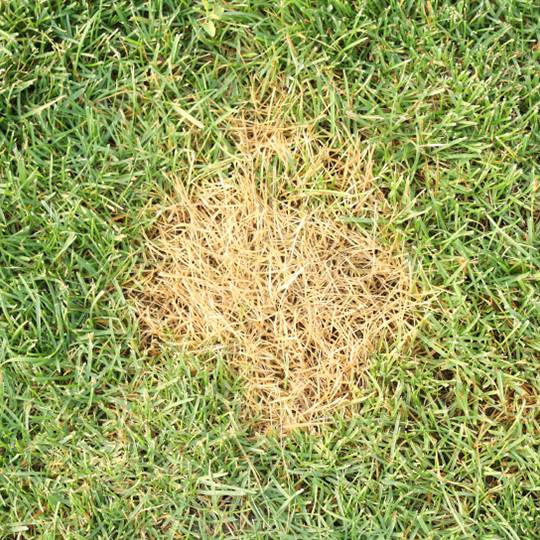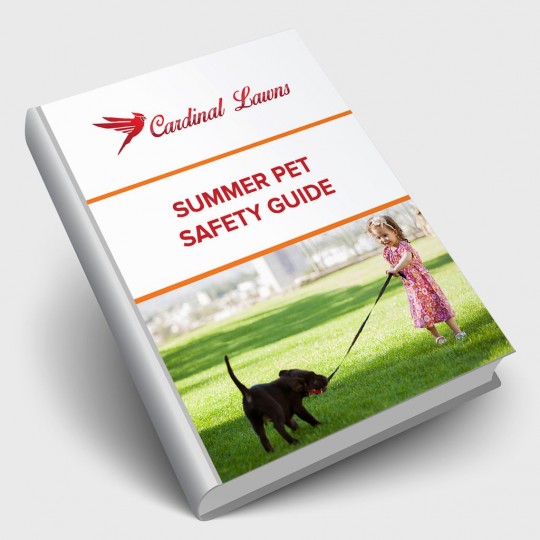Treating Dog Urine Damage on Your Lawn
Posted
May 5, 2016

Your pup is your best pal! Unfortunately, Fido is rarely a friend to your grass. Dog urine damage is the result of frequent urination on your turf. Often difficult to prevent and treat, it is possible to have a canine companion and a beautiful lawn at the same time. Read on to learn more about treating dog urine damage on your lawn.
Should You Blame the Dog?
First and foremost, it is important to ensure that the damage to your lawn can actually be attributed to a dog. The brown patches from dog urine damage often bear a striking resemblance to several lawn diseases. Does your dog have a preferred spot to spray? Many do, so take that into account when observing the damage.
There’s a way to know the root of your problems for sure. Try grabbing a handful of turf and give it a tug. If the grass comes up by the root, you probably have some form of lawn disease or a grub infestation. Firmly rooted grass means that your pup likely is the culprit.
What Causes Dog Urine Damage on Your Lawn?
The nitrogen in dog urine is the reason for your yard woes. Like certain types of fertilizer, dog urine tends to be very high in nitrogen. While some nitrogen is beneficial for your grass, excessive amounts cause damage. The key to prevention lies in limiting the amount of nitrogen your lawn receives. Read on to learn more.
Tips
Encourage Good Habits: Training your dog to stick to one less-visible (preferably non-turf) location when it urinates can help contain the damage to a single area. This alone can solve your problem–assuming your dog cooperates!
- Water Well – Apply a deep watering to the soil where dog urine damage tends to occur. Pouring a small pitcher of water over the spot is also helpful as it can dilute the urine after a dog goes.
- Hydration – Provide ample drinking water for your dog. Increasing its water consumption helps dilute the urine and reduces its potency and the potential for grass damage. Adding water to your dog’s food can also help.
- Feeding Time – Find a high-quality dog food. Certain high-end dog foods contain proteins that are easier for your dog to digest. This can result in less nitrogen in their urine.
- Fertilize – Fertilizing too little or too much can increase the stress your already injured lawn is facing. Find a happy medium and water regularly.
- Ask a Vet – There are oral supplements available on the market that can be added to your dog’s diet, but their nutritional value and safety are up for debate. Consult your veterinarian before feeding these to your dog.
The More You Know
- Female dogs tend to cause more lawn damage because they empty their bladders in one spot while males often mark in several places.
- When choosing an oral supplement, it is important not to change your dog’s urine pH. Again, it is best to get a veterinarian’s input before including one in your dog’s diet.
Ask an Expert
The experts at Cardinal Lawns have seen their fair share of doggie damage. Call on us to help keep your lawn green, despite your dog’s bathroom habits.
Special Offer for New Customers
Two Free Lawn Care Treatments
Hurry! Offer Expires April 30, 2025

Download Your FREE Summer Pet Safety Guide
Take some time to learn about how to protect your pet in the summer. This handy guide for Summer Pet Safety contains tips and what to avoid when playing outdoors during this hot, humid season.